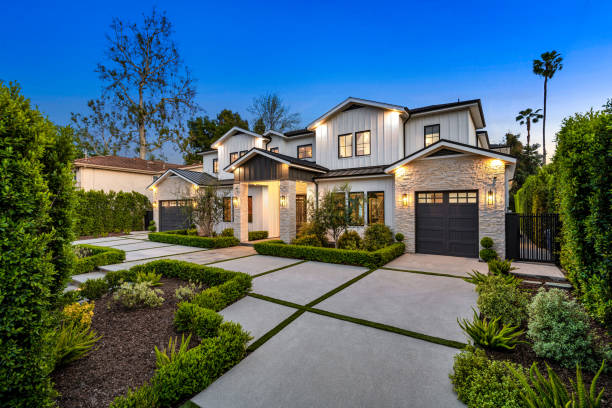The luxury real estate market in 2025 continues to evolve in response to shifting economic conditions, changing buyer preferences, and emerging technological innovations. As we analyze current trends and market indicators, several key developments are shaping the high-end property landscape.
Interest rates remain a crucial factor influencing the luxury market. Following the Federal Reserve’s measured approach to monetary policy throughout 2024, rates have stabilized but remain higher than the historic lows seen in previous years. This new normal has created a more selective pool of luxury buyers, with cash purchases becoming increasingly prevalent among ultra-high-net-worth individuals.
International buyers are making a strong comeback in premier markets like New York, Miami, and Los Angeles. The easing of global travel restrictions and the strengthening of various foreign currencies against the dollar have reignited overseas investment in American luxury properties. Chinese buyers, in particular, are returning to the market after a notable absence, though their purchasing patterns show a preference for newer developments with smart home technology and sustainable features.
Sustainability has moved from a desirable feature to a fundamental requirement in the luxury segment.
“Properties with LEED certification, solar installations, and advanced energy management systems command premium prices. The trend extends beyond environmental considerations to include wellness features, with buyers demanding sophisticated air and water filtration systems, home gyms, and spa facilities as standard amenities.”, says Butler Real Estate, a Luxury Real Estate buyers agent.
The definition of luxury continues to expand beyond traditional urban centers. Remote work capabilities have sustained demand for luxury properties in secondary markets and resort destinations. Areas like Austin, Nashville, and Colorado’s mountain communities are seeing unprecedented interest from high-net-worth buyers seeking spacious properties with state-of-art home offices and outdoor living spaces.
Technology integration has become a key differentiator in the luxury market. Smart home systems that offer sophisticated security, climate control, and entertainment options are now expected features. Properties with advanced home automation, electric vehicle charging stations, and high-speed fiber internet connections attract particular interest from tech-savvy buyers.
Privacy and security considerations are increasingly driving purchasing decisions. Gated communities and properties with advanced security systems are commanding higher premiums. The trend extends to digital security, with buyers showing preference for homes equipped with cybersecurity features to protect smart home systems from potential breaches.
The luxury rental market is experiencing significant growth, particularly in urban areas. High-net-worth individuals are increasingly choosing to rent rather than buy in certain markets, driving demand for ultra-luxury apartments and penthouses with hotel-like amenities and services. This trend is particularly pronounced among younger wealthy professionals who value flexibility and service over traditional ownership.
New development projects are adapting to changing market demands. Luxury buildings are incorporating more extensive common areas and amenities, including co-working spaces, private dining rooms, and wellness centers. Developers are also focusing on smaller unit counts with larger floor plans, responding to buyers’ continued desire for more space following the pandemic era.
Looking ahead, the luxury real estate market is expected to remain resilient despite broader economic uncertainties. While transaction volumes may moderate compared to recent years, prices in prime locations are projected to hold steady or see modest appreciation. The flight to quality continues, with buyers showing strong preference for properties that offer a combination of location, amenities, and future-proof features.
Market-specific variations will become more pronounced. While traditional luxury markets maintain their appeal, emerging luxury destinations are expected to see stronger price appreciation as infrastructure improvements and lifestyle amenities catch up to buyer expectations. This geographic diversification of luxury real estate presents both opportunities and challenges for investors and developers.
The intersection of luxury real estate with digital innovations continues to evolve. Virtual and augmented reality technologies are becoming standard tools in property marketing, allowing potential buyers to experience properties remotely. The rise of digital assets and blockchain technology is also influencing transaction processes, with some luxury properties beginning to incorporate smart contracts and cryptocurrency payment options.
As we move through 2025, the luxury real estate market remains dynamic and adaptive. Success in this sector increasingly depends on understanding and anticipating the evolving preferences of wealthy buyers, who are more informed, tech-savvy, and focused on sustainable living than ever before.
Published by HOLR Magazine.


